The story of my father, Arthur Brown, Topper, as he was known in the Army. He was taken prisoner in the Battle of Dunkirk and remained a prisoner of war for four years. He then managed to escape and arrived back in England a few months before the war ended. This series of posts trace his life, his wartime experiences and the way, years later, he was finally reunited with the Polish family which saved his life, Find the link to Part 1 – “Life Before the War” at the end of this present post.
Part 2 – Prisoner of War
Arthur was just nineteen years old when he came face to face with a German armoured car in the battle of Dunkirk. He had survived the constant bombing and strafing from the Stukas and had wtnessed the fall of many of his comrades. In a way, it was a relief for him to now be a prisoner of war and leave the trauma of the battlefield. But what would come next? He simply didn’t know. He had no idea that this would be his life for the next four years. He was however, just grateful to be alive.
The Journey
Everything seemed so confusing. The prisoners were put into a column and marched out of town. They were to continue marching for three weeks, through France and Luxembourg until they reached the German town of Trier, a journey of about 500 km. From there, the prisoners were loaded onto trains made up of cattle trucks. They remained in the wagons for three days and nights until they arrived at Torun, near Bydgoszsz on the River Vistula in occupied Poland.
Here the POWs (Prisoners of War), were registered, had their photos taken and were given their dogtags with name, camp and prisoner number.
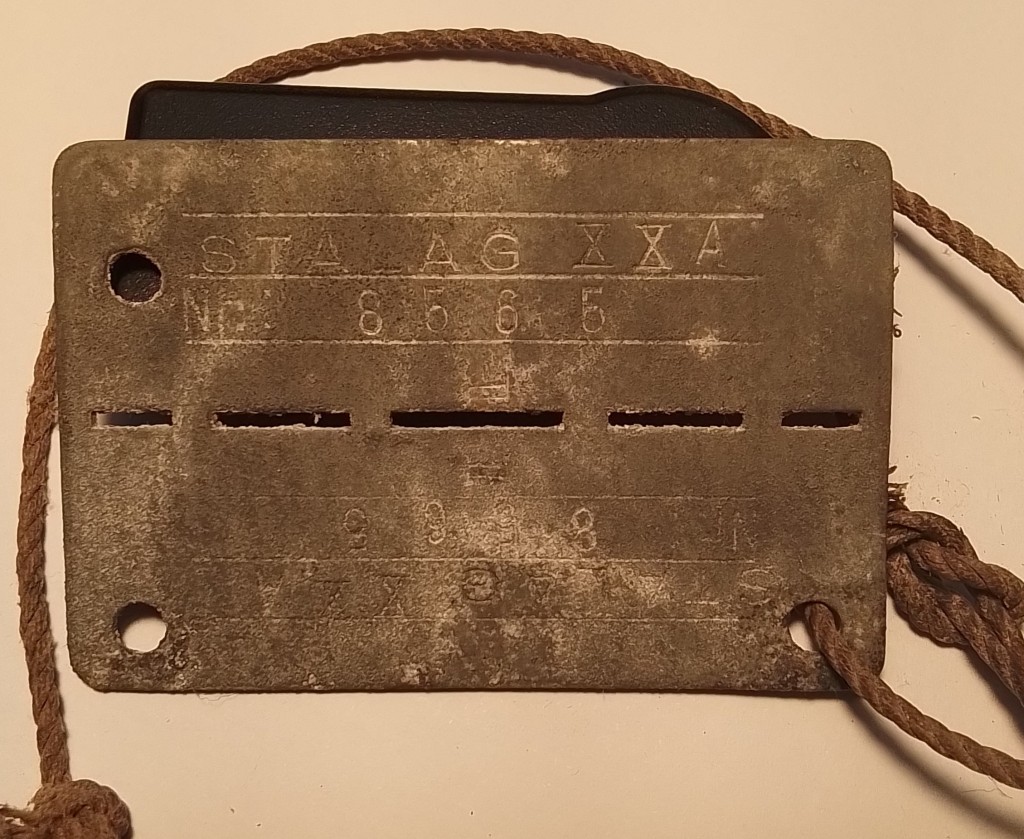
This information was then sent to the Red Cross in Geneva who could then be in contact with the soldiers’ next of kin,
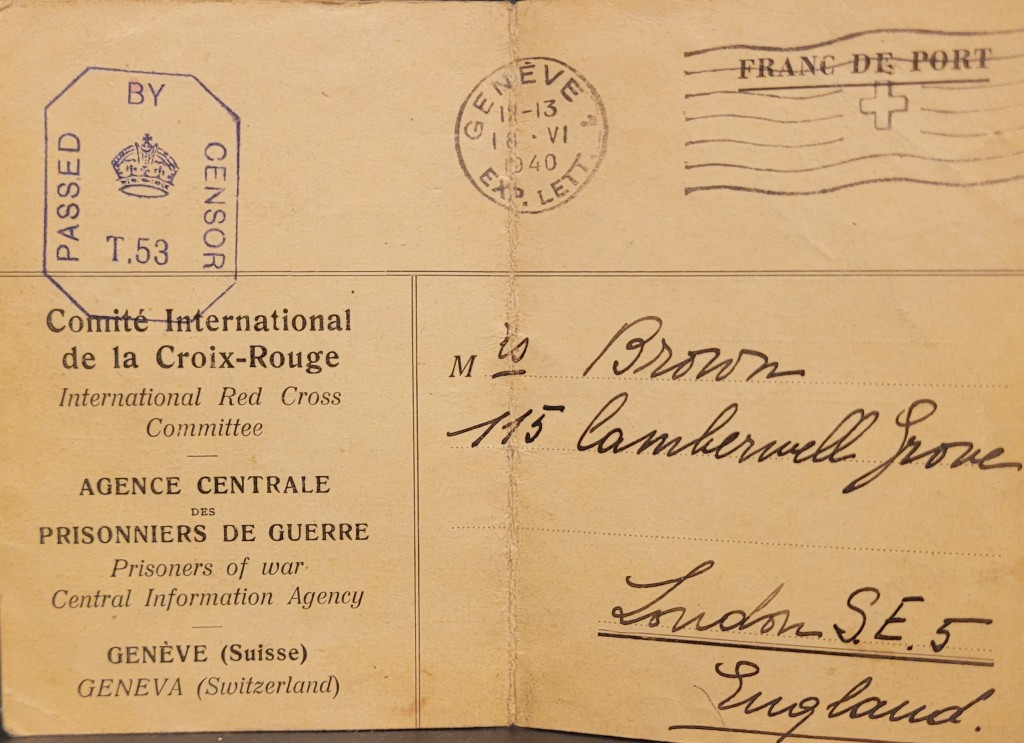

Arthur’s mother received this notification from the Red Cross on June 18th 1940, about two months after he was captured on the beach near Dunkirk.
The Camps
The prisoners were then assigned to prison camps.
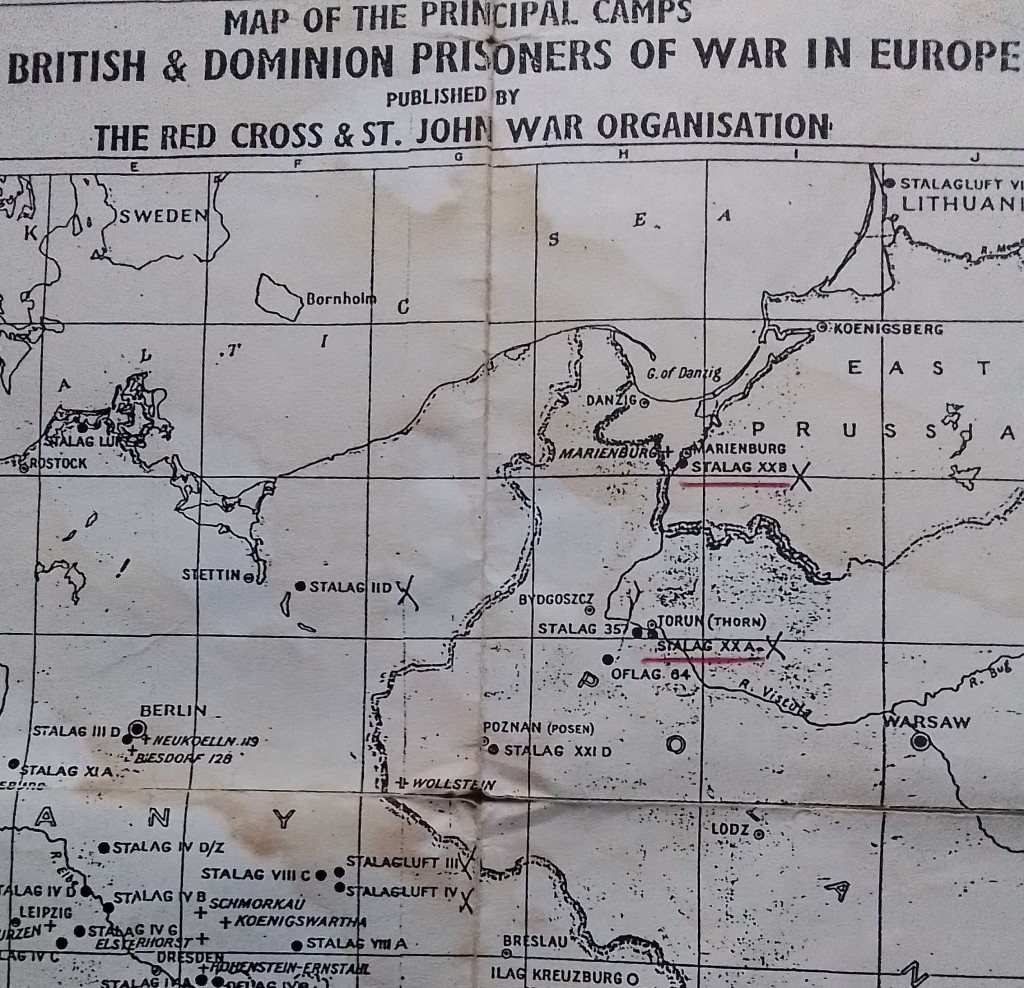
There were different kinds of camps.
- Airmen were sent to special, very secure camps (Stalag Luft) Pilots were highly skilled and it was important that they could not escape.
- Officers were sent to Oflags, which were also heavily guarded.
- Enlisted soldiers were sent to Stalags. These were the main camps. The prisoners lived together in huts in a compound surrounded by barbed wire fences and control towers.
Arthur ended up in STALAG XXA and also STALAG XXB. (See map)
According to the Geneva Convention, officers did not have to work. However the ordinary soldier did have to work. The prisoners left the STALAG to different work places. There would be maybe ten to forty prisoners in each work party, accompanied by German guards. They would stay in the worksite for perhaps a couple of weeks or longer and then return to the STALAG, the main camp. My father worked making bricks, chopping down trees, constructing roads and also working on a farm. This was his preference, as in the farm, there was always more to eat.
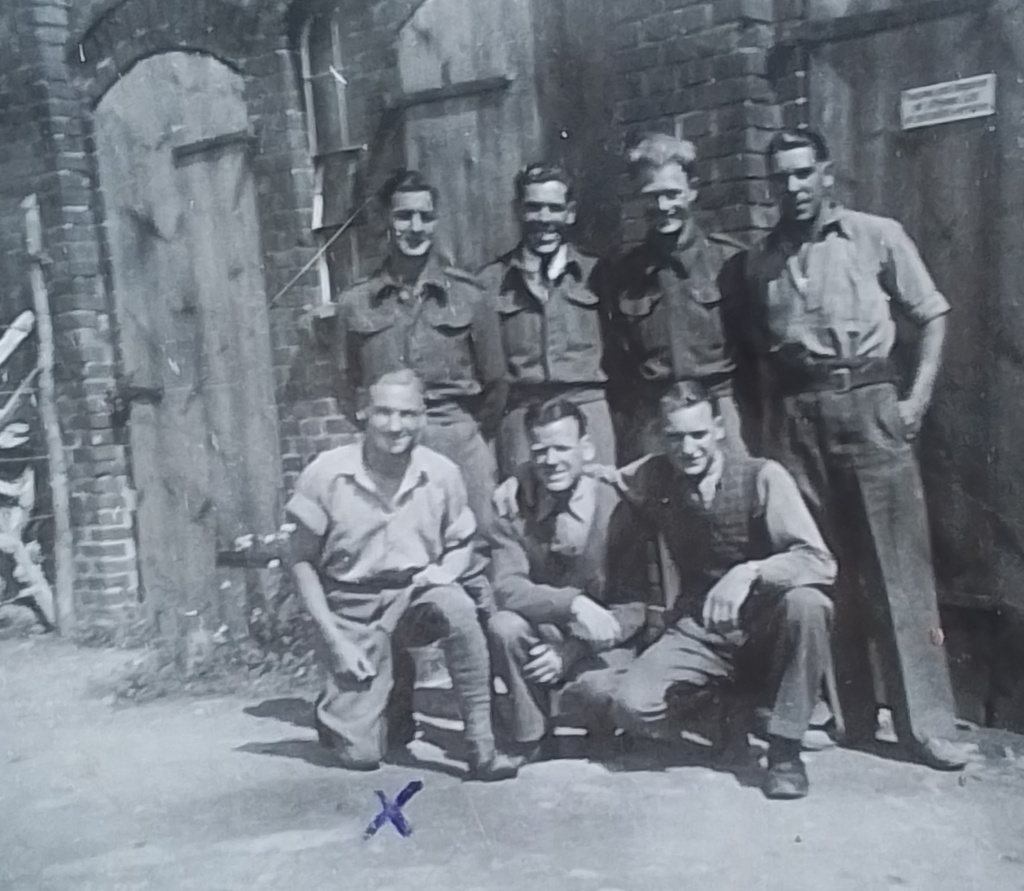
My father explained that it was not so difficult to escape from the STALAG or the work party . The problem was, what to do then when they were on the run. Germany by that time had occupied so much territory that the only options for a soldier imprisoned in Poland was to
- reach the Swiss border
- reach the Spanish border
- get to Sweden by boarding a Swedish ship in Danzig, (northen Poland)
With only the clothes on their back and no money this was no easy matter. Most prisoners only spoke English which was a further difficulty. They were also unaware whether they would receive help from the local people. Although the Poles would be very much on the side of the escapers, the soldiers were only too aware that if the local people were caught helping them, they would most probably be shot.
My father did escape twice.
The first time he was caught after a week on the run. He was punished with three weeks solitary confinement . He only had bread and water during this time with a bowl of soup, once every three days.
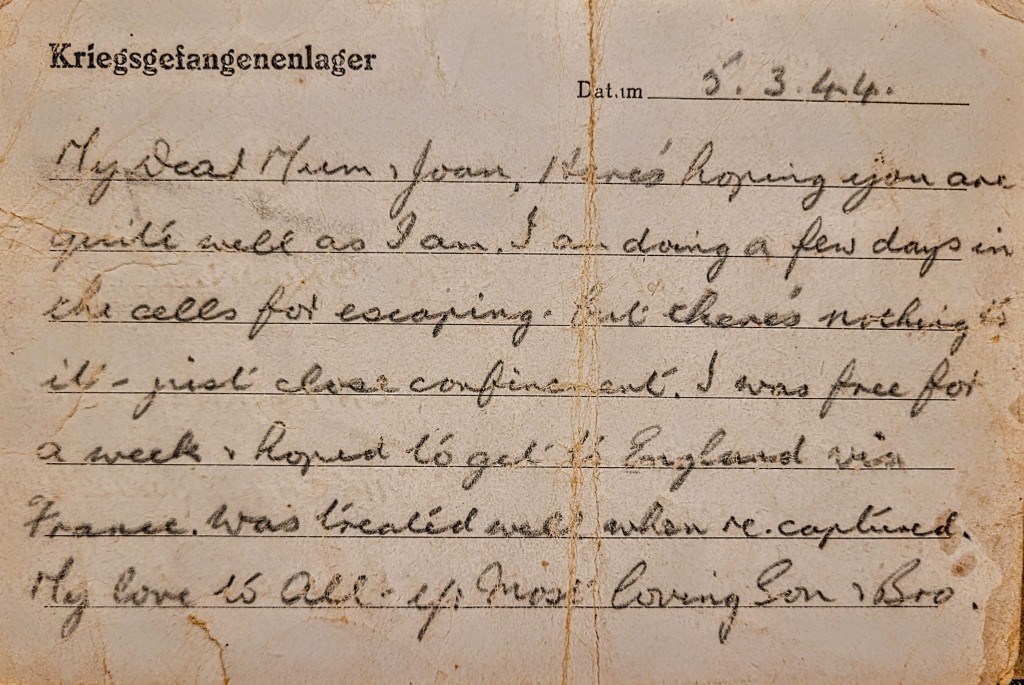
The second time he had a better plan. He found out where other work parties were. He managed to get a basic map. He would travel only at night, and head to one of these camps to rest up before continuing on to the next one, and so on. There, the soldiers would hide them and provide them with food before moving on. Unfortunately, my father and his partner got caught entering the camp. The guards summoned all the prisoners for a head count. To their astonishment they had two more prisoners than they should have.
Yes…..a good creative plan…. but bad luck on getting caught entering the camp. However, they did achieve the dubious fame of being the only two POWs caught trying to break into a camp, rather than breaking out.
This time he again had his three weeks of solitary confinement, but was then transferred to a punishment camp for escapers, the Straflager in Pankendorf.
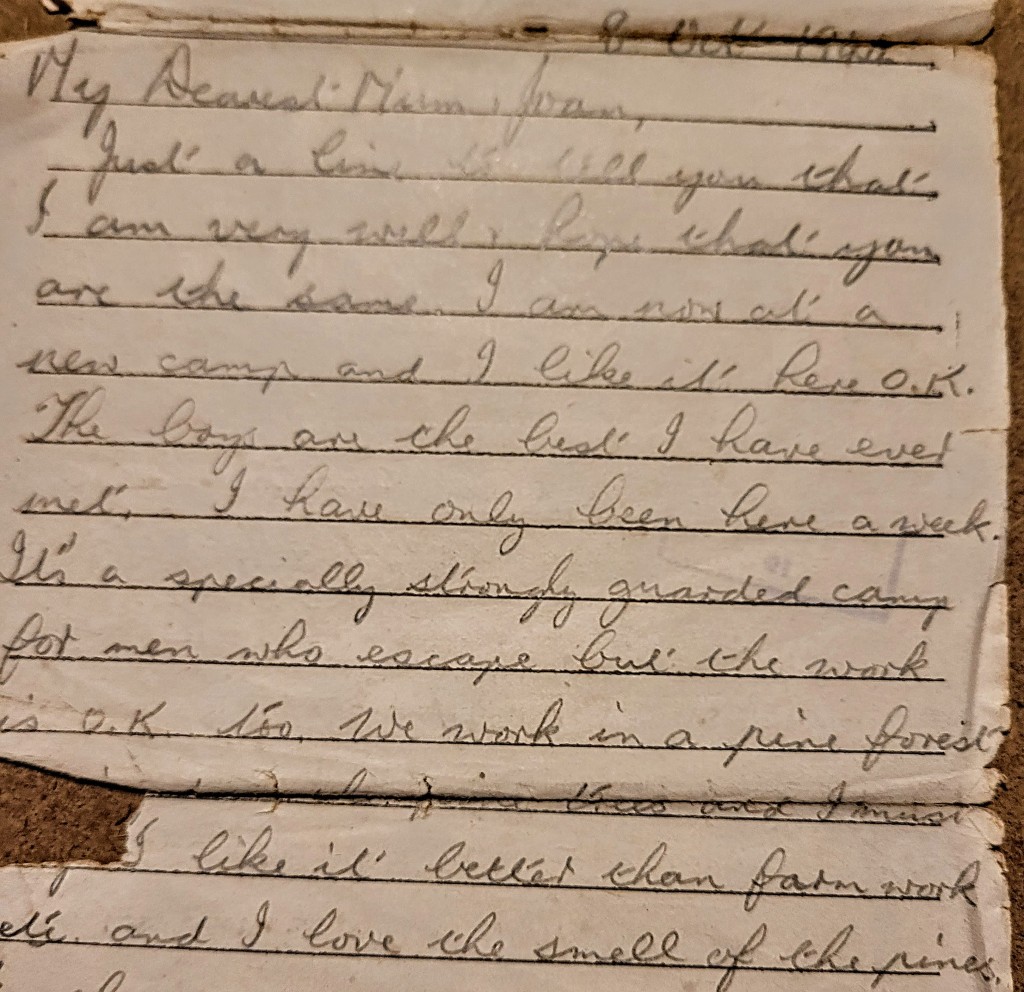
So, as they say third time lucky……. and indeed, finally, on his third attempt, he did manage to escape …. but risked his life in doing so. After a series of dangers and ordeals, he got back to England just before the war ended….. but these details will come in later post.
The next episode (Episode 3), however will focus on the life of the prisoner in a Prisoner of War Camp.
If you haven’t seen the previous episode, here is a link.
Link to previous post -Part 1 – “Before the War”
Rdffg
H
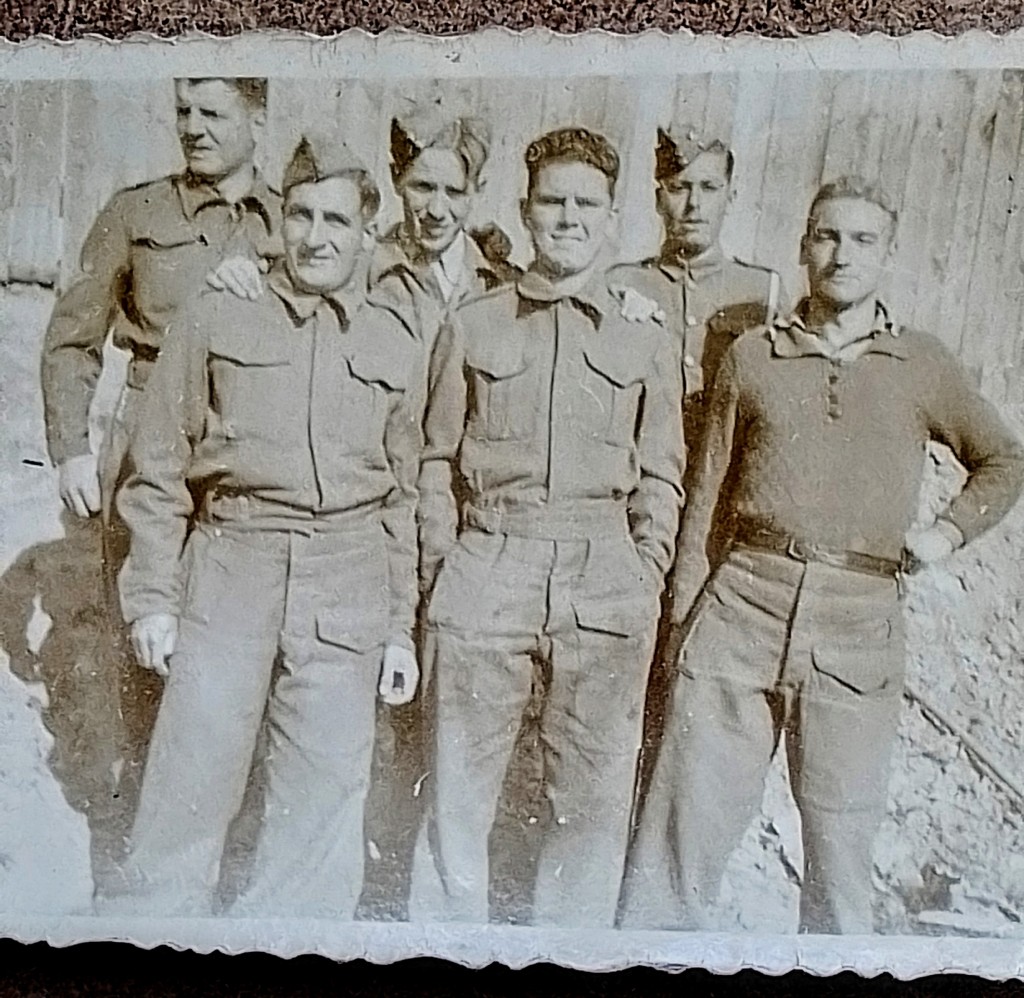
Leave a comment